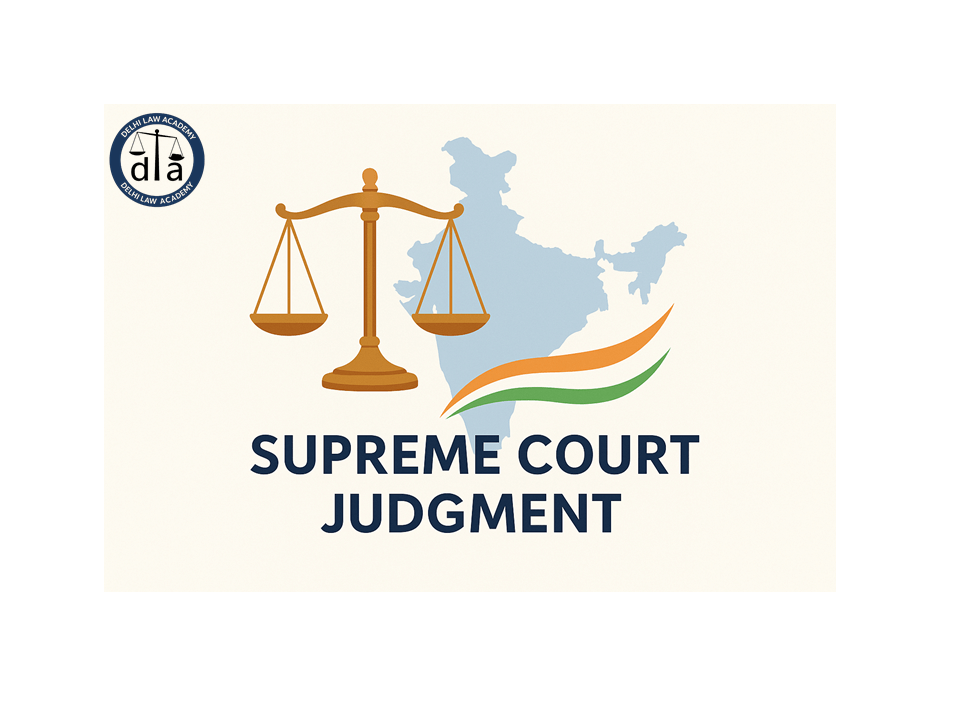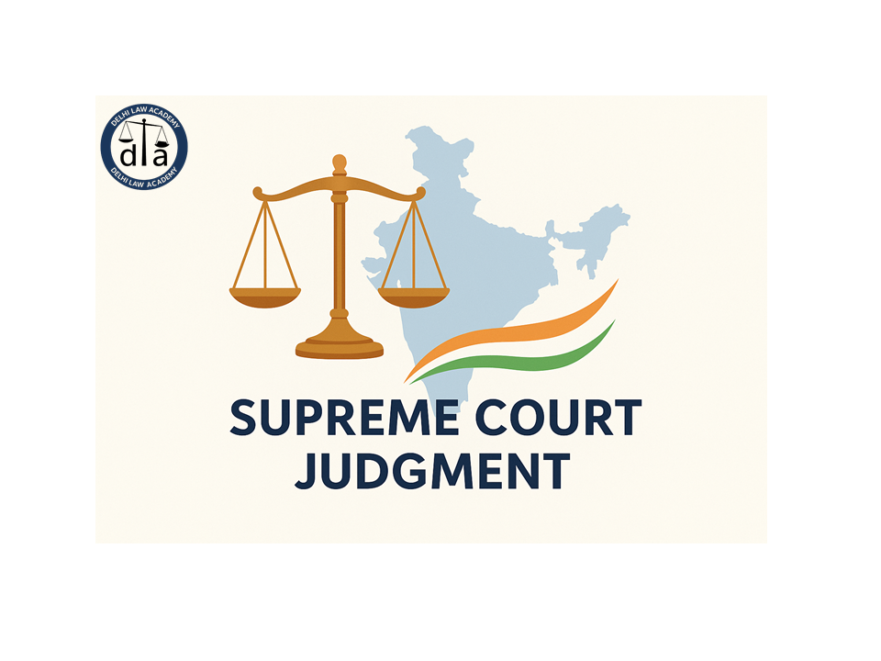
⚖️ Dying Declaration – Supreme Court on Acceptability
Preparation for RJS, DJS, PCS (J) and other Judicial Service exams
The Evidence Act forms the bedrock of any and every Judicial Service exam in the country. Its thorough knowledge is a must for all aspirants of RJS, DJS, PCS (J) and every other Judicial Service exam. To help such aspirants, Delhi Law Academy Jaipur has launched a series of study material modules on all important aspects of this vital part of their syllabus.
📌 Laxman v. State of Maharashtra [2002 SC]
In this criminal appeal, the conviction of the accused-appellant is based upon the dying declaration of the voluntary and trustworthy deceased. The Magistrate in his evidence had stated that he contacted the patient through the medical officer on duty and, after putting questions to the patient regarding her consciousness and ability to make the statement, recorded the statement of the deceased. A certificate by the doctor indicated that the patient was conscious. The High Court, after considering the evidence of the Magistrate and the doctor’s certificate, concluded that the deceased Chandrakala was physically and mentally fit and that the dying declaration can be relied upon.
📜 Observations on Legal Principles
At the outset, the Court clarified that it was only resolving conflicts between previous judgments and refraining from examining the evidence to reach a conclusion on the facts. The juristic theory regarding acceptability of a dying declaration is that such declaration is made in extremity, when the party is at the point of death and every motive to falsehood is silenced, inducing the person to speak only the truth.
Great caution must be exercised due to circumstances that may affect the truthfulness of the declaration. The solemnity of the deathbed situation justifies accepting the veracity of the statement. Oath and cross-examination are dispensed with because the accused cannot cross-examine the declarant. Courts insist that the dying declaration must inspire full confidence in its truthfulness and correctness.
🕵️♂️ Safeguards and Considerations
- The court must ensure the statement was not prompted, tutored, or imagined.
- The deceased must be in a fit mental state and able to identify the assailant.
- Medical opinion is consulted to verify fitness, but eyewitness testimony can prevail.
✍️ Recording of a Dying Declaration
A dying declaration can be oral or written, using any adequate method of communication. Statements are often oral and reduced to writing by a Magistrate, doctor, or police officer. No oath or presence of a Magistrate is strictly necessary, though usually preferred to ensure authenticity. There is no statutory form required for recording.
📌 Evidential Value
The weight of a dying declaration depends on facts and circumstances. The recorder must be satisfied that the deceased was in a fit state of mind. A magistrate’s testimony confirming fitness is sufficient even without medical certification. Certification by the doctor is a rule of caution; voluntariness and truthfulness can be otherwise established.
⚖️ Legal Clarifications
The Court clarified that observations in Paparambaka Rosamma v. State of A.P. regarding mandatory medical certification were too broad. Even without a doctor’s certificate of mental fitness, a magistrate’s assessment of the deceased’s mental state can validate the declaration. The judgment in Koli Chunilal Savji v. State of Gujarat was affirmed as the correct legal precedent.
📚 Further Reading for Law Aspirants
Explore more useful resources from Delhi Law Academy to strengthen your preparation:
❓ FAQs on Dying Declaration
Contact us
📍 Delhi Law Academy – Jaipur Branch
6C, Tower 2, Coaching Hub, Pratap Nagar, Jaipur – 302033
📞 Phone:
+91 9911916552
+91 8447285606
✉️ Email:
contactus@delhilawacademy.com

